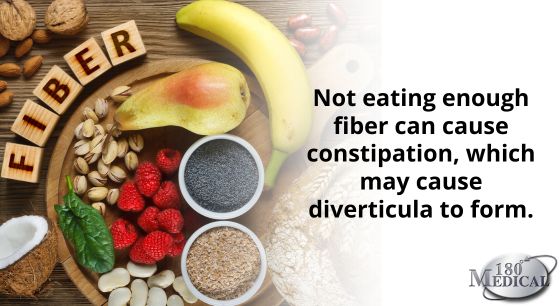
Diverticulitis is a condition that affects many people. Treating it sometimes requires lifestyle and diet changes and even surgery in severe cases. If you or a loved one has diverticulitis and may need ostomy surgery, here’s what you should know.
Diverticulitis and Its Relation to Ostomy Surgery
If you are a UFC fan, you might remember a few years back how Brock Lesnar had to withdraw from the sport because of complications from a disease called diverticulitis. Although Lesnar’s health eventually improved, and he currently performs in the WWE, he was on the sidelines for a while. During that time, he lost weight and strength, and he had surgery to remove a foot of his colon. His journey highlights the seriousness of diverticulitis and its impact on an individual’s health.
So, what is diverticulitis? Diverticulitis is when small pouches or sacs called diverticula develop inside the colon and become inflamed. While diverticula are common and often appear without noticeable symptoms, complications can arise if the pouches become irritated or infected.
Severe or recurrent diverticulitis may require surgery, such as a bowel resection to remove damaged portions of the colon. Diverticula can also form on weak spots, which can sometimes lead to a serious condition called bowel perforation. For example, 180 Medical Community member Gerald had to undergo ostomy surgery due to diverticulitis-caused bowel perforation and had a temporary ileostomy while his colon healed.
Here are a few more things you should know about diverticulitis and ostomy surgery.
What Causes Diverticulitis?
The exact cause of diverticulitis is not fully understood, but several factors may increase the risk:
- Low-Fiber Diet: Not eating enough fiber can cause constipation. This may cause diverticula to form.
- High Red Meat Consumption: Diets high in red processed meats may be related to a higher risk of diverticulitis.
- Certain Medications: Some pain medications and other drugs may increase the risk due to side effects like constipation.
- Aging: Age and family history may play a role in the development of diverticulitis.

What Are the Symptoms of Diverticulitis?
It depends on the severity of the condition. In its most mild form, diverticulitis may cause no symptoms. In the most extreme cases, it can be quite painful and require surgery.
Symptoms may include:
- Pain, usually in the lower left side of the abdomen
- Fever
- Nausea
- Vomiting
- Chills
- Constipation
- Cramping
4 Things To Know About Diverticulitis and Ostomy Surgery
For those managing diverticulitis, here are four key points to know, especially if surgery and ostomy care become part of the treatment plan.
1. Severe Diverticulitis May Require Surgery
The good news is that most cases of diverticulitis can be managed with dietary changes and lifestyle adjustments. In moderate cases, a doctor may also recommend over-the-counter or prescription medications.
However, ostomy surgery may be necessary in severe or complicated cases where diverticulitis leads to abscesses, fistulas, or bowel perforations. This surgery, often involving a bowel resection, removes the affected portion of the colon to prevent further complications.
2. Surgery for Diverticulitis May Result in a Temporary or Permanent Ostomy
For some individuals, diverticulitis surgery may require the creation of an ostomy, where part of the colon is rerouted to an opening in the abdomen called a stoma. Waste exits through this opening, allowing the rest of the colon to heal. In some cases, this ostomy may be temporary, allowing for later reconnection. However, if extensive colon damage occurs, a permanent ostomy might be necessary.
3. Adjusting to Life with an Ostomy After Diverticulitis Surgery
Living with an ostomy can be a significant adjustment. The new stoma requires care, and individuals will need to find the right ostomy supplies for comfort and function. While it can feel overwhelming, support and resources are available. Many people find that with the right products and guidance, they can resume a full, active lifestyle.
At 180 Medical, our Ostomy Specialists help you find personalized products and provide guidance on adapting to life with an ostomy.

4. Support and Resources Are Available for Ostomy Care
Transitioning to life with an ostomy after diverticulitis surgery can be easier with the right support network. Organizations like the United Ostomy Associations of America (UOAA) provide community resources, support groups, and education, while suppliers like 180 Medical offer specialized support, free product samples, and access to certified WOCNs (Wound, Ostomy, and Continence Nurses).
Having the right supplies and support team can make a significant difference, allowing you to focus on healing and adapting to life post-surgery with confidence.
Diverticulitis can be life-changing, but it is possible to live a normal life with a few modifications.
If you have had an ostomy procedure as part of your diverticulitis treatment, our Ostomy Specialists are ready to help you find the products you need to make the transition easier. In addition to ostomy supplies, 180 Medical is proud to offer affordable catheter supplies and products.